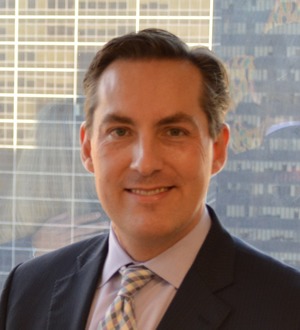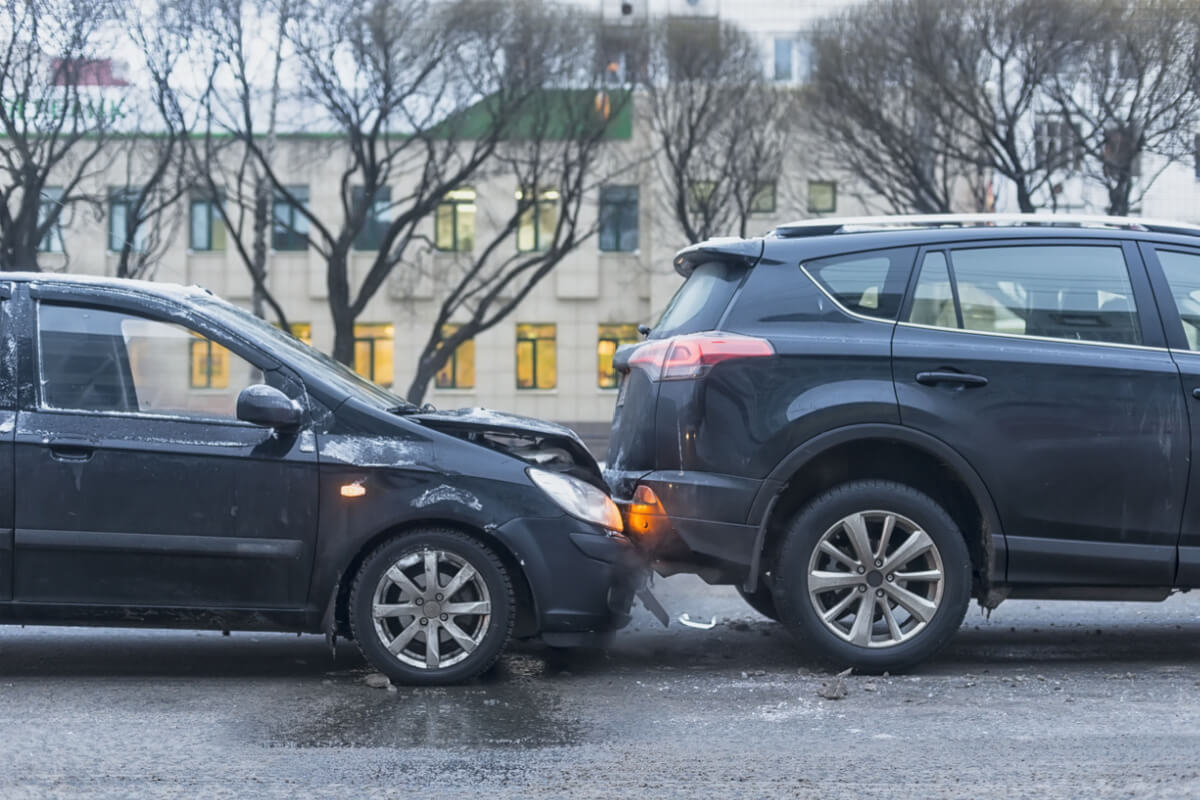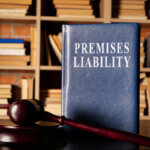
Partner at AKD Lawyers
Practice Areas: Personal Injury, Insurance Claims

Car accidents are a serious concern across the country, but the situation in New Orleans has become increasingly alarming. In recent years, the city has seen a rise in traffic crashes involving injuries, fatalities, and extensive property damage. For many residents, commuting through New Orleans now comes with real safety risks.
Understanding what causes most of these accidents is a crucial step in preventing them. Whether you’re a lifelong resident or visiting the city, knowing the common dangers on the road can help protect you and others.
In 2021, Orleans Parish reported the highest number of traffic-related deaths since 2004. Pedestrian fatalities nearly doubled compared to the previous year.”
Let’s examine the leading causes of car accidents in New Orleans and what you can do to stay safe while driving.
Distracted Driving: A Persistent Danger
Distracted driving is one of the most dangerous habits on Louisiana roads. In cities like New Orleans, where traffic congestion is common, even a few seconds of inattention can lead to a serious crash. The most common source of distraction is the mobile phone—texting, calling, scrolling through apps, or even using GPS without voice guidance.
Distracted driving contributed to 574 fatal crashes in Louisiana in 2022.
(Source: Louisiana Highway Safety Commission)
Louisiana law prohibits handheld phone use while driving in a school zone and bans all texting while driving statewide. Under RS 32:300.5, the state enforces hands-free usage to reduce distraction.
To avoid distracted driving, silence notifications, activate “Do Not Disturb” mode, and pull over if you need to send a message or look at your phone. It only takes a moment to change lives forever.
Drunk Driving in Urban Louisiana
Drunk driving remains a significant factor in car accidents throughout New Orleans. Despite years of public safety campaigns and law enforcement crackdowns, impaired driving continues to cause loss of life and life-altering injuries.
In 2021, there were 251 alcohol-related fatal crashes in Louisiana, with 85 of them in urban areas.
(Source: Center for Analytics and Research in Transportation Safety)
Most alcohol-related crashes involve drivers between the ages of 25 and 34, highlighting a vulnerable demographic often involved in nightlife or social events.
Choosing not to drive under the influence—and encouraging others to do the same—can save lives. Rideshare apps, taxis, and designated drivers are safer and far less costly than a crash or a criminal charge. Intervene if you see someone planning to drive while impaired.
Speeding and Its Consequences
Speeding is another common contributor to serious crashes in the city. Many drivers treat speed limits as suggestions, but in urban areas like New Orleans, this kind of behavior is hazardous. Speeding reduces the time you have to react to pedestrians, traffic lights, and other vehicles.
In 2019, speeding was responsible for 9,478 fatalities across the U.S., representing more than a quarter of all traffic deaths.
(Source: National Highway Traffic Safety Administration)
In Louisiana, speeding violations fall under RS 32:61-65. Fines, points on your license, and higher insurance premiums are only part of the risk—lives are at stake.
Keeping to the posted speed limits allows you to better control your vehicle and increases your ability to respond to the unexpected. In rainy or low-visibility conditions, it’s even more critical to slow down and give yourself extra space.
Reckless and Aggressive Driving Behaviors
Reckless driving isn’t just dangerous—it’s against the law. Under RS 14:99, Louisiana defines reckless operation as operating a vehicle in a way that disregards other people’s safety. This includes tailgating, aggressive lane changes, running red lights, or excessive speeding.
One tragic example involved a fatal crash on I-10 near Causeway Boulevard in Metairie, where a driver reportedly weaved in and out of lanes before crashing into multiple vehicles. The result was the death of an 82-year-old man and various charges filed against the reckless driver.
If you witness aggressive driving, try to distance yourself from the vehicle and report it to the authorities if possible. Be prepared with information like the license plate, vehicle description, and location. You could help prevent the next crash.
Adverse Weather and Hazardous Conditions
New Orleans is no stranger to unpredictable weather. From sudden downpours to thick fog and street flooding, poor weather conditions can make driving extremely dangerous. Reduced visibility, slippery roads, and stalled traffic all increase the chance of collisions.
Orleans Parish’s premature death rate due to accidents is 51% higher than the national average.
(Source: County Health Rankings & Roadmaps)
When the weather turns bad, slowing down and increasing your following distance are essential. Make sure your windshield wipers, headlights, and tires are in good condition. If flooding is reported, avoid driving through affected areas—even a few inches of water can turn off a car or cause hydroplaning.
Staying informed about forecasts and adjusting your travel plans can prevent accidents when weather conditions take a turn.
Annual Car Accident Fatalities in New Orleans (2019–2023)
| Year | Total Fatal Accidents | Pedestrian Deaths | Alcohol-Related Fatalities | Weather-Related Incidents |
| 2019 | 78 | 13 | 42 | 7 |
| 2020 |
85 |
11 | 48 |
9 |
| 2021 |
97 |
21 | 51 |
11 |
| 2022 |
92 |
18 | 49 |
10 |
| 2023 | 90 (est.) | 20 (est.) | 50 (est.) |
12 (est.) |
Frequently Asked Questions (FAQs)
What are the most common causes of car accidents in New Orleans?
Distracted driving, drunk driving, speeding, reckless behavior, and weather-related hazards are among the top causes of accidents in the city.
Is it illegal to use a phone while driving in Louisiana?
Yes. Under Louisiana RS 32:300.5, it is illegal to operate a mobile device while driving unless using hands-free mode.
What should I do immediately after a car accident?
To ensure safety, call 911, exchange insurance information, get medical help, and take pictures of the scene, even if injuries appear minor.
Can I recover compensation if I was partially at fault?
Yes. Louisiana follows a comparative fault system, which allows partial recovery based on your degree of fault in the accident.
How does the weather contribute to car crashes in New Orleans?
Heavy rain, flooding, and fog can reduce visibility and traction, increasing the risk of hydroplaning and delayed reaction times.
Should I report reckless drivers to the police?
Yes. Reporting dangerous drivers can help prevent future accidents. If possible, contact local law enforcement and provide vehicle details.
Conclusion
Car accidents in New Orleans happen far too often, and in many cases, they are entirely preventable. Whether it’s avoiding distractions, planning for bad weather, or simply respecting the speed limit, each driver has the power to reduce the risk of harm on the road.
If you’ve been involved in a crash caused by someone else’s negligence, it’s essential to understand your rights. Legal guidance can clarify your options and protect your ability to recover fair compensation.
Alvendia, Kelly & Demarest Law Firm has experience handling a wide range of car accident cases in New Orleans and offers trusted legal support when you need it most.
The outcome of any case depends on its specific facts. Past results do not guarantee future outcomes.
Categories

In 2003, after being dissatisfied with the quality of legal care for victims of car accidents, Roderick ‘Rico’ Alvendia sought to establish a new firm focused on providing high-quality legal services to aid injured victims and their families. J. Bart Kelly, sharing Rico’s passion for upholding justice, joined the firm later that year, and established a partnership.






